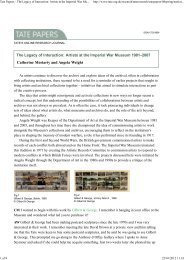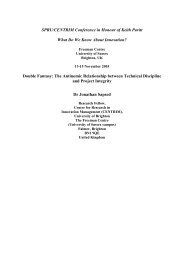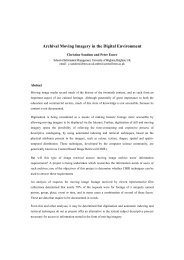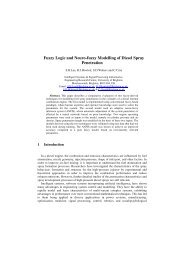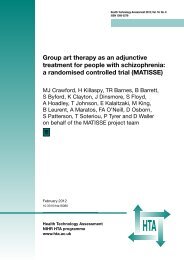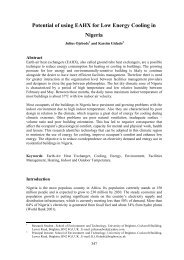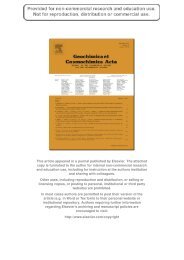NESTA Crime Online - University of Brighton Repository
NESTA Crime Online - University of Brighton Repository
NESTA Crime Online - University of Brighton Repository
Create successful ePaper yourself
Turn your PDF publications into a flip-book with our unique Google optimized e-Paper software.
In the UK a national initiative is urgently required, which is followed up at a regional<br />
level and in international forums. The UK should co-ordinate the national fight against<br />
cybercrime in partnership with other international actors. For this purpose, combining<br />
resources and sharing information across national, regional and international intelligence<br />
forces becomes crucial. European Union member states need to make common cause.<br />
Given that so many cybercrime operations take place in developing countries, aid<br />
agencies need to be persuaded to become significant stakeholders – having already<br />
become involved in police reform programmes, this is an institutionally legitimate area<br />
<strong>of</strong> development.<br />
The value chain analysis illustrates the disperse nature <strong>of</strong> cybercrime – multiple actors<br />
involved in the processes <strong>of</strong> detecting vulnerabilities, infection, distribution and<br />
exploitation – which makes it difficult to identify the criminals. Once crimes are<br />
perpetrated, there is a question as to who bears the costs? In this process, the victims<br />
<strong>of</strong> cybercrime – <strong>of</strong>ten individuals – tend to become powerless receiving mixed<br />
information from police, banks or retailers. One <strong>of</strong> our interviewees 245 strongly<br />
recommended that the protection <strong>of</strong> citizens needs to be at the heart <strong>of</strong> any new<br />
initiatives to combat cybercrime.<br />
The fundamental problem within the private sector is transparency. Simply put, the high<br />
street banks have been reluctant to release adequate information. The recent,<br />
fundamental shift in the relationship between these institutions and government as a<br />
result <strong>of</strong> the financial crisis should be used to apply leverage to encourage greater<br />
information sharing and analysis. It is also unclear to what extent the banks work<br />
together in this area but there is a strong suspicion that efforts are atomised, whereas<br />
cooperation would <strong>of</strong>fer a far better use <strong>of</strong> resources. Banks should also be encouraged<br />
to pledge a percentage <strong>of</strong> pr<strong>of</strong>its or turnover to combating cybercrime.<br />
A similar response is required in relation to the independent security firms that track and<br />
analyse cybercrime. There is little transparency with regard to capabilities and<br />
methodologies. In the absence <strong>of</strong> such information, there is a tendency to suspect that<br />
245 Interview with Michael Hallowes, National Policing Improvement Agency (NPIA), 2 nd April 2009.<br />
Page 88




